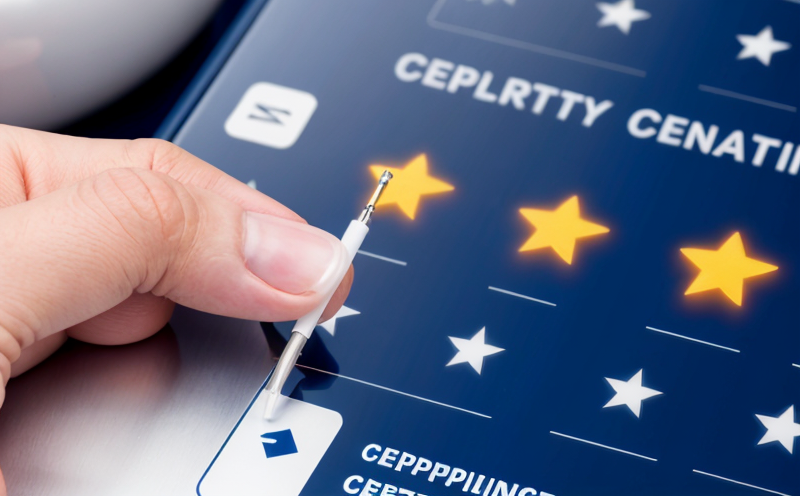ISO 10993 Biocompatibility Regulatory Compliance Testing
The ISO 10993 series of standards provides a framework for ensuring that medical devices are biocompatible and do not cause harm to the human body during their intended use. This service involves testing medical devices according to these internationally recognized guidelines, which are essential for regulatory compliance in the medical device sector.
The tests included under ISO 10993 are designed to assess potential biological effects of materials used in medical devices. These tests can be broadly categorized into three main areas: system suitability, biocompatibility testing, and long-term use assessment. System suitability tests ensure that the test apparatus is functioning correctly, while biocompatibility testing evaluates how a device interacts with tissues, fluids, and cells. Long-term use assessments look at the durability and safety of the device over extended periods.
The process starts with thorough documentation of the medical device’s intended use and the materials it will be in contact with. This information is crucial for selecting the appropriate tests. For instance, a device that comes into direct contact with blood would require more stringent testing than one that only makes occasional skin-to-device contact. Once this information is established, the testing begins.
The most common tests performed under ISO 10993 include cytotoxicity, sensitization, ecotoxicology, hemocompatibility, genotoxicity, and pyrogenicity assessments. Each test has specific criteria for specimen preparation and analysis. For example, in a cytotoxicity test, the device is incubated with cells to observe any adverse effects on cellular viability.
After conducting these tests, detailed reports are compiled. These reports not only summarize the results but also provide insights into potential risks associated with the medical device. Compliance officers and quality managers can use this information to make informed decisions regarding product safety and regulatory approval.
The importance of ISO 10993 testing cannot be overstated, especially in today's highly regulated environment. Regulatory bodies such as the FDA and the EMA require adherence to these standards for medical devices intended for sale within their jurisdictions. Failure to comply can lead to significant delays in product launches or even forced recalls.
With a growing emphasis on patient safety and efficacy, ISO 10993 testing has become an integral part of the development process for medical devices. It ensures that products are not only effective but also safe for use by patients. The international nature of these standards makes them particularly valuable in a global market where compliance with local regulations is crucial.
Understanding and adhering to ISO 10993 biocompatibility testing can provide several benefits, including enhanced product safety, improved regulatory compliance, and increased confidence among healthcare providers and patients. By ensuring that medical devices are free from harmful contaminants and do not cause adverse reactions, this service helps protect public health.
Benefits
Adhering to ISO 10993 biocompatibility testing offers numerous advantages to manufacturers of medical devices. Firstly, it ensures that the products meet international standards for safety and efficacy. This is critical not only in obtaining regulatory approval but also in gaining the trust of healthcare providers and patients.
- Enhanced Safety: Testing according to ISO 10993 helps identify potential risks early in the development process, leading to safer medical devices.
- Facilitates Regulatory Compliance: Adherence to these standards is mandatory for many countries and regulatory bodies, ensuring smoother product launches and fewer delays.
- Improved Reputation: Demonstrating commitment to quality and safety can enhance the reputation of a company in the medical device sector.
In addition to these direct benefits, ISO 10993 testing also supports long-term business success by reducing the risk of product recalls and legal actions. By ensuring that products meet stringent biocompatibility standards, companies can protect themselves from potential lawsuits and negative publicity.
Moreover, this service fosters innovation within the medical device industry. By continuously improving test protocols and methodologies, manufacturers can develop safer, more effective devices, which in turn leads to advancements in healthcare technology.
Industry Applications
| Device Type | Testing Requirements |
|---|---|
| Implants | Cytotoxicity, sensitization testing |
| Medical Adhesives and Tapes | Hemocompatibility, genotoxicity assessment |
| Dental Implants | Biofilm formation studies |
| Catheters | Sensitization testing, pyrogenicity assessments |
- Orthopedic Devices: Testing for wear debris and its potential impact on surrounding tissues.
- Vascular Prostheses: Evaluating long-term stability and biocompatibility with blood.
- Dermal Devices: Assessing the risk of irritation or allergic reactions upon contact with skin.
The versatility of ISO 10993 testing makes it applicable across a wide range of medical devices, ensuring that all contact surfaces are evaluated for safety and compatibility. This comprehensive approach is crucial in today’s diverse healthcare landscape where patient safety remains the top priority.
Eurolab Advantages
At Eurolab, we pride ourselves on providing world-class ISO 10993 biocompatibility testing services. Our experienced team of experts ensures that every test is conducted with precision and accuracy, adhering strictly to international standards.
- Dedicated Facilities: We have state-of-the-art laboratories equipped with the latest instrumentation for comprehensive testing.
- Expertise: Our staff consists of highly qualified professionals who are well-versed in ISO 10993 guidelines and best practices.
- Prompt Turnaround Time: We understand the importance of timely results, ensuring that your product development process is not delayed.
- Comprehensive Reporting: Our reports are detailed and informative, providing valuable insights into the safety profile of your medical device.
In addition to these advantages, Eurolab offers a range of support services tailored to meet the specific needs of our clients. From initial consultation to final report generation, we ensure that every step of the ISO 10993 testing process is handled efficiently and effectively.
Choosing Eurolab for your ISO 10993 biocompatibility testing not only guarantees high-quality results but also positions your company at the forefront of medical device innovation. With our commitment to excellence, you can be confident that your products will meet the highest standards of safety and efficacy.





